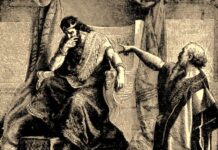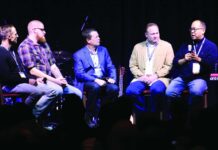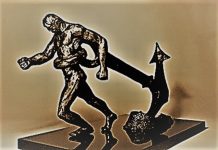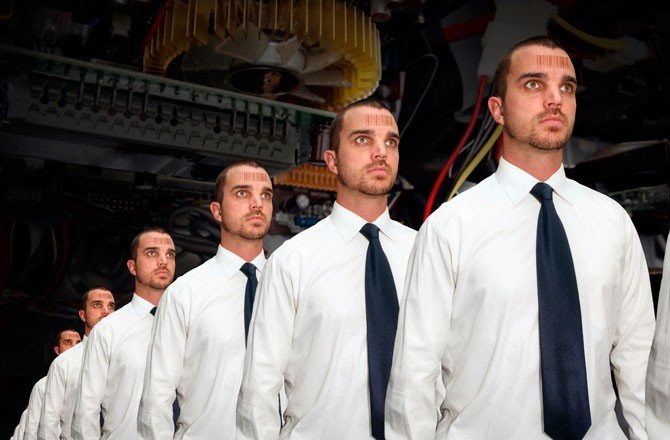We don’t need to make Christian Clones. Those who count themselves as fathers need to be mindful that to be effective in the discipleship process they will need to look more like Him than us.
Several years ago, an internationally known TV ministry sent one of its associate pastors to prepare our church for a visit from their senior pastor. Everything about this man seemed to be an exact duplication of the senior pastor, his voice, his hair, his mode of dress, his mannerisms, expressions that he used… He began his presentation by exclaiming what a great church we were and with a spiel about how he didn’t know what we were paying our pastors, but it was not enough, he didn’t know what kind of car they drove, but it ought to be a BMW… Ironically, when the senior pastor arrived a week later, he began his presentation with a word for word rendering of that same spiel.
While it is not particularly surprising or even a problem that these two men would share certain characteristics, such a complete replication (Clone) of someone else’s image edges dangerously close to a cult of personality. And in the midst of this, I felt like the Lord began to speak to me about the difference between “raising sons” and “producing clones”.
As a father of four children (two boys & two girls), I can attest that each of my children share some measure of similarity to me. Though some of that is undoubtedly due to DNA, there is also the profound influence that comes from sharing life experiences together on a daily basis. For example, how they see their mother and I relate undoubtedly helps to shape their ideas about relationship and marriage; just as our beliefs and attitudes about things like God, politics, patriotism, education… helps to form their conception of those things. A testament to the profound effect of this is that one of my daughters is not my biological child and yet I can see myself in her almost as clearly as I can in the other children.
But just as easily as I can identify the similarities, I can also see that all of them possess many other traits that we don’t share, and to be sure they are four completely unique beings. They each have different gifts, fears, learning patterns, strengths, inspirations… I believe that this is a testament to the fact that while God may have used some raw material from their mother and me within the creation process, He created them to be far more than just an amalgam clone of the two of us. He created them to go further than we’ll go, and to do more than we’ll ever accomplish. To be sure, we as parents must be diligent in helping them to forge a good foundation, but it is ultimately the “Master Architect” who designs what is to be built upon it.
There is a very natural temptation to want to duplicate the things that we view as being successful, but as the old saying goes, if you do what you’ve always done, you’ll get what you always got. It is often what has been successful that causes us to become protective of what we’ve already attained and reluctant to venture into new territory. Some leaders fall prey to the idea of leaving a lasting legacy, which on the surface can almost seem virtuous, but which in practice can often cause what was once a dynamic organization to become little more than a lifeless monument made up of clones of the past leader.
In truth a legacy is not something that we ourselves can create, it is simply the byproduct of how others perceive us. As much as I hope to leave a legacy of faith for my children, the danger in them asking themselves how I might handle a given situation is that they may never bother to ask God what He would have them do. As we seek to “empower” the leaders of the next generation, we must ensure that they understand exactly where that power comes from. We’ll know that we’ve genuinely “empowered” them when we allow them to draw different conclusions than we have, and when they are allowed to pursue visions that didn’t come from or through us.
As I considered the scriptural representation of these issues I thought of Moses and Joshua. To be sure, Moses was an amazing leader, with an unparalleled record of achievements and yet it was God who ordained that Joshua would be the one to lead His people into the Promised Land. There is nothing in scripture that seems to indicate that Joshua did anything to imitate Moses and I’m sure that it isn’t a coincidence that Joshua’s introduction to leadership began with a very definitive proclamation from heaven, “Moses is dead”. That pronouncement seemed to signal the end of one very painful era and the beginning of another, more fruitful one. While some might suggest that Joshua could never have done what Moses did; I would suggest that it is equally true that Moses could not have fulfilled Joshua’s mission either. In ways that may have only been known to God, Joshua was just the right man, at just the right time. He was not the spiritual clone of Moses.
Those who count themselves as fathers need to be mindful that their children’s destiny is to be transformed into the image of Christ. If we are being effective in the discipleship process, they will look more like Him than us. He created each of His children to be a unique representation of who He is, and not one to be a replica of a person who happened to come before them.
Corbin, Bryan bryan.corbin@ports.pppo.gov
See also Mike Rose article on Making Clones
or his website https://iamsignificant.ca/
Clones








































